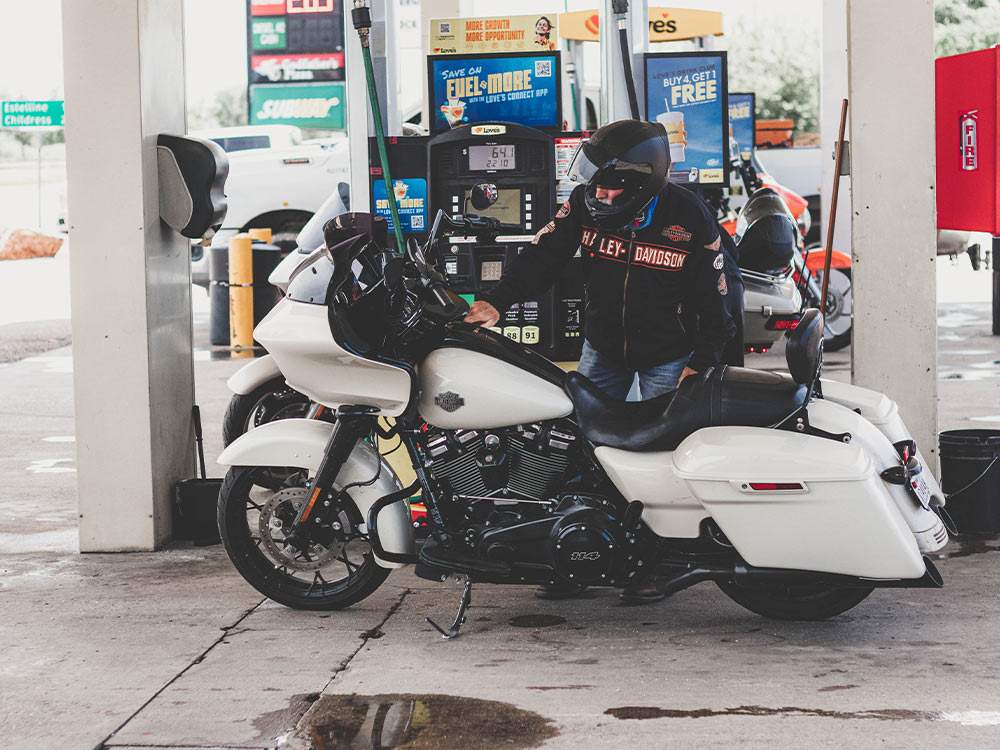Table of Content
Gas-powered motorcycles have been around for around 140 years. Many see motorbikes powered by gas engines as a sign of adventure and freedom. What makes gas motorbikes so popular is their strong engines, fast speeds, throttle response, catchy designs, and control over the bike. As climate change and pollution become growingly serious issues, there is growing pressure on governments and environmental groups to support and adopt clean energy options.
Because of these concerns, talks about banning petrol bikes have started to appear. Despite no worldwide ban, a growing number of cities and countries are setting rules that may lead to gas-powered bikes being phased out in the end. Continue reading this article to learn more about the current talks about banning gas-driven bikes.

1. Drawbacks of Gas Motorbikes That Can Lead to a Ban
1.1 Climate Concerns
The environmental damage caused by gas-powered bikes is one of the key reasons they remain a hot topic. Now, as the technology has reached a very advanced level, there are more than just talks on the matter of banning petrol bikes and promoting electric motorbikes. Real steps are being taken to replace gas-driven motorbikes with electric bikes.
The same has been done with gas-powered cars. We are already witnessing a revolution when it comes to gas-powered cars, as more and more people are shifting towards electric or hybrid cars. The pace of the change is phenomenal. We can say that a great amount of work has been done already.
Talking about the gas motorbikes, fossil fuel is what these bikes burn, and that leads to harmful emissions in the air. Carbon dioxide, carbon monoxide, lead compounds, nitrogen oxides, and other hazardous matter increase both air pollution and climate change. Motorbikes usually do not have advanced emission control systems, which means they can cause a lot of air pollution.
Many advanced nations and countries are aiming for high targets to cut down on carbon emissions. A number of nations plan to become carbon-neutral by 2050, and removing vehicles driven on petrol from the scene is a major part of their plan. Electric bikes that do not cause air pollution by releasing hazardous gases are being encouraged as a good choice for the environment. The emergence of new technology means electric bikes are becoming more efficient and offer similar performance to gas-powered motorcycles without polluting the air.
1.2 Noise Pollution and Urban Restrictions
Gas motorcycles produce a lot of noise as well, along with air pollution. The noise from their engines can bother people, mainly in crowded cities. Quieter cities that prefer peace over everything are making rules to manage the amount of noise in their surroundings. Some places have banned loud bikes, and others are considering stricter rules for bikes that run on petrol and loud exhaust pipes.
2. Some Countries Have Future Plans to Restrict Gas-Powered Bikes
Paris has decided to remove free parking for gas motorbikes to help riders choose electric bikes instead.
Amsterdam aims to stop all gas and diesel vehicles from driving in its city center by 2030.
Norway is aiming to phase out bikes powered by petrol and cars by 2025.
Brussels, the capital of Belgium, plans to restrict petrol scooters and bikes by 2028.
These steps signal a rise in efforts to decrease gas-powered bikes in large cities.
3. Government Policies and Potential Future Bans on Gas-Powered Bikes
Lots of countries are working to decrease the number of gas motorbikes on their roads. The United Kingdom is looking into a plan to stop selling new gas-powered bikes in 2035. California, which is quite strict about the climate and air pollution, is moving to draft strict rules for emissions control. New diesel cars and taxis will not be allowed to be registered in Singapore from 2025, and this rule could also include motorbikes later on.
It looks like gas-driven bikes may not be banned right away, but their future is not secure. It is likely that governments will make it tougher for riders to have bikes that run on petrol by gradually introducing new and strict rules. Electric bikes are becoming more popular, so gas-driven motorbikes may slowly be removed from the streets.
4. Bike Industry Response and Electric Alternatives

Because of these changes, bike makers have started spending heavily on electric bike tech. Leading bike makers are making electric bikes that deliver the same power and speed as gas-powered bikes. Advantages of electric bikes are no emissions, less expense to run, and instant torque. They also make less noise, which makes them good for cities.
Still, several issues have to be solved first, without which electric bikes cannot become mainstream. A lot of riders have issues with the range of electric bikes since they don’t offer as much battery life as gas-powered ones. There are not many places to charge electric bikes yet, and they tend to be more expensive when you buy them. For most old and traditional bike riders, electric bikes do not have the familiar sound they are used to.
In spite of these issues, the industry is advancing toward using electricity. When batteries get better and more charging spots are available, electric bikes are expected to become the main choice. A few bike makers are trying out hybrid bikes that give you the option to switch from battery to gas power when required.
5. Will Gas-Driven Bikes Disappear in the Near Future?
Although the restrictions on gas motorcycles are increasing over time, they are not likely to be banned all at once. Bans will probably be brought in slowly, so that all parties have time to adjust. A gas-powered bike could be considered a classic or vintage and thus receive an exemption, so the past of bike riding is not forgotten. There are also places where the rules for gas-powered bikes are less strict, so they are permitted on roads for a longer period.
Advances in fuel efficiency and emissions technology may allow gas-powered bikes to run for a longer time. Some bike makers are making engines that burn cleaner and yet still perform well. If these ideas work out well, gas-driven bikes may still be around next to electric models.
6. What Riders Can Do?
Those who love motorbikes can follow news about policies to plan for future changes. Tracking new regulations allows riders to figure out what rules may apply to them. You could also try out electric bikes, since test-riding can tell you about their ability and performance.
Properly maintaining gas-driven bikes helps meet the tougher requirements for emissions. By keeping your vehicle clean, using cleaner fuels, and updating some of its parts, you can help nature and the climate. Riders are able to talk with policymakers to support rules that support the needs of bike riders.

7. Conclusion
Gas-powered bikes are still allowed legally in many countries, but restrictions on them are being placed more often. Not many riders are adopting electric bikes yet. However, electric bikes are still becoming an option because of concerns for the climate and new government policies.
Although gas-powered bikes are not going to disappear overnight, nobody can predict their future. People who ride should pay attention to updates, check out electric options, and get used to changes in transportation.










Leave a comment
All comments are moderated before being published.
This site is protected by hCaptcha and the hCaptcha Privacy Policy and Terms of Service apply.